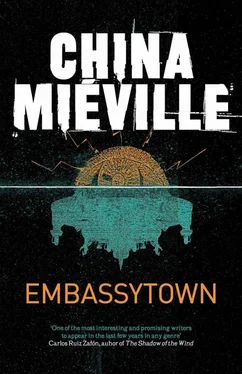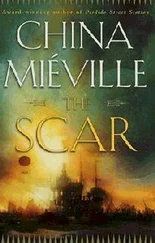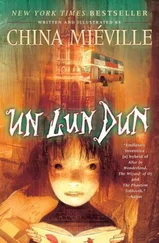I was bad at money but had amassed some. I couldn’t claim that marriage was my real skill, but I was better at it than many. I’d had two previous husbands and a wife. I’d lost them to changes of predilection, without rancour—as I say, I wasn’t bad at marriage. Scile was my fourth spouse.
As an immerser I progressed to the ranks I aspired to—those that granted me a certain cachet and income while keeping me from fundamental responsibilities. This is what I excelled at: the life-technique of aggregated skill, luck, laziness and chutzpah that we call floaking.
Immersers, I think, created the term. Everyone has some floaker in them. There’s a devil on your shoulder. Not everyone crewing aspires to master the technique—there are those who want to captain or explore—but for most, floaking is indispensable. Some people think it mere indolence but it’s a more active and nuanced technique than that. Floakers aren’t afraid of effort: many crew work very hard to get shipboard in the first place. I did.
When I think of my age I think in years, still, even after all this time and travel. It’s bad form, and ship-life should have cured me of it. “Years?” one of my first officers shouted at me. “I don’t give two shits about whatever your pisspot home’s sidereal shenanigans are, I want to know how old you are.”
Answer in hours. Answer in subjective hours: no officer cares if you’ve slowed any compared to your pisspot home. No one cares which of the countless year-lengths you grew up with. So, when I was about 170 kilohours old I left Embassytown. I returned when I was 266Kh, married, with savings, having learnt a few things.
I was about 158 kilohours old when I learnt that I could immerse. I knew then what I’d do, and I did it.
I answer in subjective hours; I have to bear objective hours vaguely in mind; I think in the years of my birth-home, which was itself dictated to by the schedules of another place. None of this has anything to do with Terre. I once met a junior immerser from some self-hating backwater who reckoned in what he called “earth-years”, the risible fool. I asked him if he’d been to the place by the calendar of which he lived. Of course he’d no more idea of where it was than I.
AS I’VE GROWN OLDER I’ve become conscious of how unsurprising I am. What happened to me didn’t happen to many Embassytowners—that’s surely the point—but the story of its happening is classic. I was born in a place that I thought for thousands of hours was enough of a universe. Then I knew quite suddenly that it was not, but that I wouldn’t be able to leave; and then I could leave. You hear the same all over the place, and not only among the human.
Here’s another memory. We used to play at immersing, running up behind each other in a little I’m invisible crouch, then shouting “Emerge!” and grabbing. We knew very little about immersion, and that play-acting was, I would come to learn, not much more inaccurate than most adult descriptions of the immer.
Irregularly throughout my youth, scheduled between incoming ships, miabs would arrive. Uncrewed little boxes full of oddments, steered by ’ware. Plenty were lost en route: became hazards forever, I later learned, in variously strange corroded forms, in the immer they’d been built to travel. But most reached us. As I got older my excitement at those arrivals became coloured by frustration, envy of them, until I realised I would, in fact, get out into the out. They became hints, then: little whispers.
When I was four and a half years old I saw a train hauling a just-touched-down miab through Embassytown. Like most children and many adults, I always wanted to witness their arrival. There was a little gang of us there from the nursery, watched and lightly corralled by Mum Quiller, I think it was, and we ourselves roughly looked out for our much younger shiftfriends. We were able to lean up over the railings mostly uninterrupted and chatter at each other and the arrival.
As always the miab was laid on a colossal flatbed, and the biorigged locomotor that hauled it through the wide cut of Embassytown’s industrial rails was heaving, putting out temporary muscular legs to strain along with its engine. The miab on its back was bigger than my nursery’s hall. A very real container, snub-bullet-shaped, moving through light rain. Its surface sheened with saft that evanesced out from its crystal shielding in threads that degraded to nothing. The authorities were irresponsible, I know now, not to have waited for that immer-stained surface to calm. This wasn’t the first miab they’d brought in still damp from its journey.
I saw a building dragged. That’s what it looked like. A big train wheezing with effort, its enginarii cajoling it through a gash. The enormous room was tugged uphill towards the Ambassadors’ castle, surrounded by Embassytowners, cheering and waving ribbons. It had an escort of centaurs, men and women perched at the front of quadruped biorigged conveyances. Some of the town’s few exots stood by their Terre friends: Kedis frills rose and flushed colours, Shur’asi and Pannegetch made their sounds. There were automa in the crowd: some staggering boxes, some with persuasive-enough Turingware that they seemed enthusiastic participants.
Inside the unmanned vessel would be cargo, presents to us from Dagostin and perhaps beyond, import things we coveted, bookware and books, newsware, rare foods, tech, letters. The craft itself would be cannibalised, too. I’d sent things out in return myself, yearly, when our own much smaller miabs were dispatched. They contained hardy goods and the paraphernalia of official duties (all carefully copied before dispatch—no one would assume any miab would reach its destination), but a little space was retained for children to correspond with pen-pal schools in the out.
“Miab, miab, message in a bottle!” Mum Berwick would sing as she gathered our letters up. Dear Class 7, Bowchurch High, Charo City, Bremen, Dagostin, I remember writing. I wish that I could come with my letter to visit you . Brief catch-up epistolary flurries every rare often.
The miab passed by one of the waterways we called rivers, which are small canals, under Stilt Bridge. I remember that there were Hosts there, with a delegation of Embassy Staff, looking down through the bridge’s coloured-glass portals, flanked by our security on biorigged mount-machines.
It was out of my sight when the stowaway emerged from the miab, but I’ve seen recordings. The tracks were overlooked by tenements on the east side and the animal gardens on the west when cracking first became audible. Had it been a kilometre farther, into the rookeries and under the bridgepaths in the Embassy’s close vicinity, it would have gone much worse.
You can see from the newsloads that some in the crowd knew what was happening. There were shouts as the noise grew, people trying to warn people. Some of those who understood simply ran. Us kids mostly just stood I think, though Mum Quiller would have done her best to get us out of there. There’s the sound of the miab’s ceramic case straining in anti-Newtonian ways. People are peering over the railings to see; more and more are getting out of there.
The miab splits, sending blades of hull matter viciously airborne. Something from the immer comes out.
Taxonomy is imprecise. Most experts agree that what emerged on that day was a minor manifestation, one I’d later learn to call a stichling. It was an insinuation at first, composing itself of angles and shadows. It accreted itself from its surrounds, manifesting in the transient. The bricks, plastone and concrete of buildings, the energy of the cages and the flesh of the captive animals from the gardens spilled toward and into the swimming thing, against physics. They substanced it. Houses were unroofed as their slates dripped sideways into a presence growing every moment more physical, more suited to this realness.
Читать дальше












